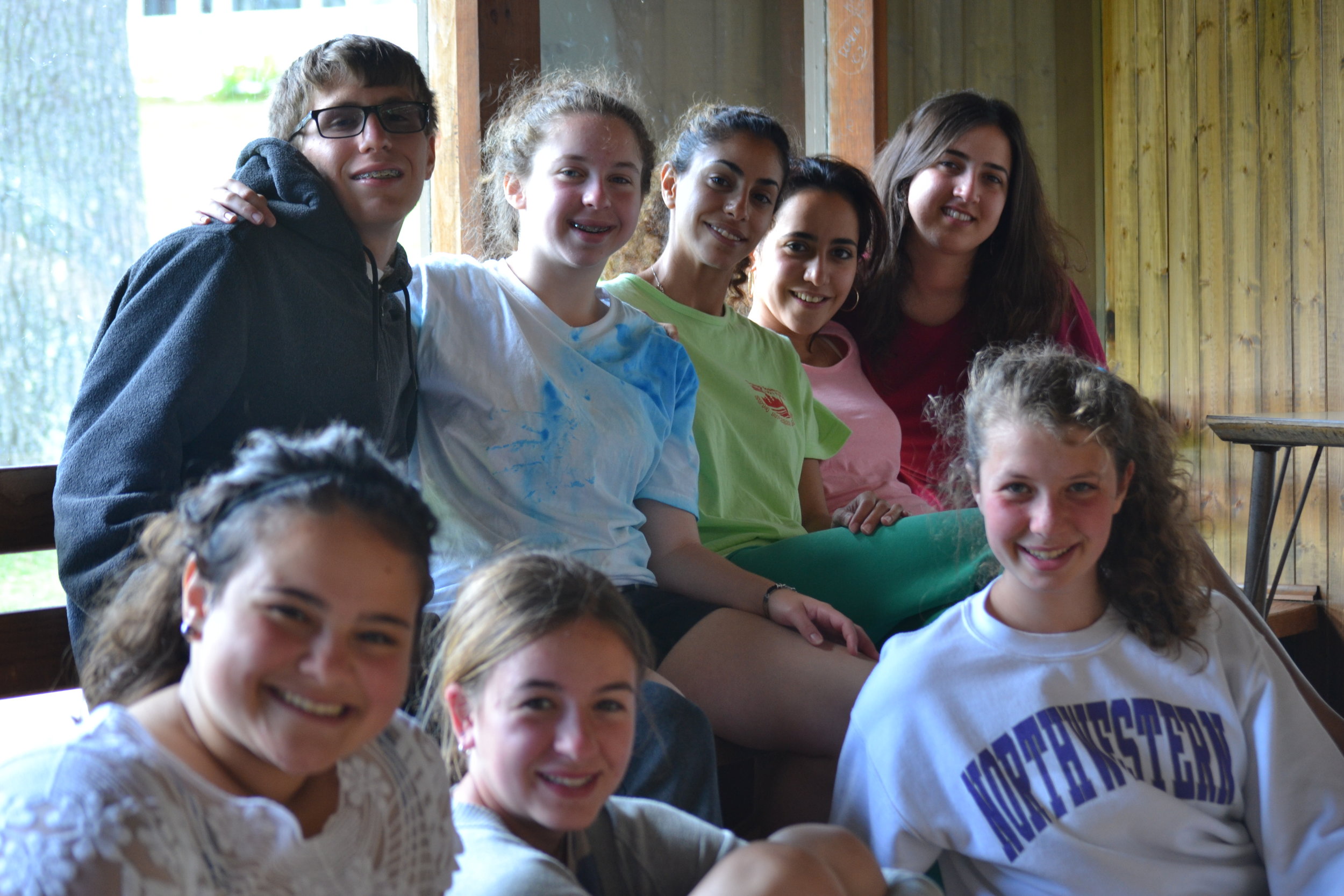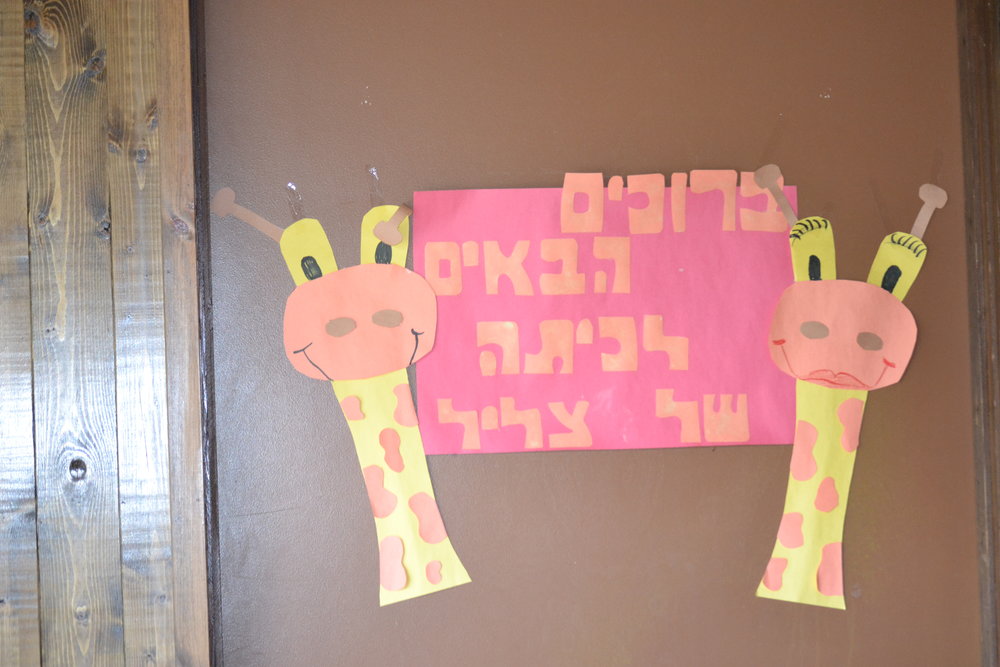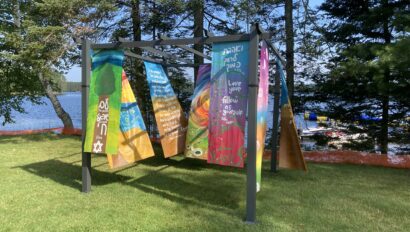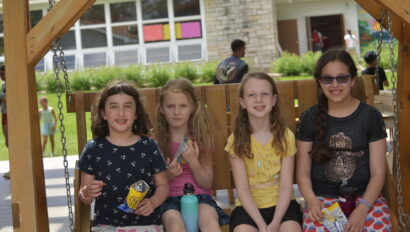Hebrew language (Ivrit) instruction and Jewish Studies classes have been an integral part of Ramah Wisconsin’s mission since our founding in 1947. The dynamic work that our leadership team of Adi Atia, Dr. Edna Levy, and Marci Dickman accomplish together with our talented faculty from Israel and the US, is a crucial part of the Ramah experience. At various points of the day, campers meet indoors and outside all around camp having fun with Hebrew or participating in engaging discussions. This core camp program is focused on Garinim through Machon campers. While they were at camp, Kochavim campers participated in a Hebrew activity each day but no formal classes. Nivonim campers work Hebrew and Jewish study into different parts of their programming, including a rotating series of visiting professors, Rabbis, and educators who provide them with a taste of college-style learning. Our Tikvah and Atzmayim campers work on their Hebrew usage through different mechanisms outside of the formal Hebrew program, and we cater to their individual learning needs in terms of Jewish Studies courses.
 Our Hebrew program this year has each aidah addressing the same general content with classes differentiated by Hebrew level. Our younger aidot are focusing on developing linguistic skills for useful Hebrew at camp: understanding public announcements and being able to read our daily newspaper, the Ivriton; communicating about activities, times, weather, and places at camp. The focus in Bogrim and Machon is integrating Hebrew outside of camp, in concert with Israeli culture. They are watching episodes of two recent popular Israeli television series that provide a glimpse into the complicated and diverse religious landscape of contemporary Israel. A number of campers come to us with phenomenal Hebrew backgrounds, especially those who are living in Israel during the school year. These campers receive individualized attention and projects from our faculty.
Our Hebrew program this year has each aidah addressing the same general content with classes differentiated by Hebrew level. Our younger aidot are focusing on developing linguistic skills for useful Hebrew at camp: understanding public announcements and being able to read our daily newspaper, the Ivriton; communicating about activities, times, weather, and places at camp. The focus in Bogrim and Machon is integrating Hebrew outside of camp, in concert with Israeli culture. They are watching episodes of two recent popular Israeli television series that provide a glimpse into the complicated and diverse religious landscape of contemporary Israel. A number of campers come to us with phenomenal Hebrew backgrounds, especially those who are living in Israel during the school year. These campers receive individualized attention and projects from our faculty.
In anticipation of our musicals, the Hebrew faculty works with the campers who will perform in a given show on the meaning and usage of central words in the chorus numbers and discussion topics that emerge thematically from those songs. The day of each musical, every Hebrew class in camp takes the opportunity to review the plot and some key words of the show, which takes place entirely in Hebrew, so as to facilitate engagement and each child’s ability to follow along.
In Jewish Studies, younger campers, through Shoafim, work on age-appropriate and often integrated components of the camp experience. The Garinim campers concluded last week a curriculum that studied Jewish values through a variety of stories drawn from Biblical, Rabbinic, Chasidic, and Yiddish contexts. Solelim campers have spent a month exploring ideas about Shabbat that celebrate our tradition and the diversity of our campers’ experiences and knowledge. Shoafim, which take on a summer-long tzedakah project to collect and then distribute money, study classical texts about tzedek, justice.
 In Bogrim and Machon our campers choose electives that interest them. After four weeks we are proud to report that we have a group of campers who have fallen in love with Yiddish; others that have create interpretations on “Chagall and Jewish Expressionism” that include contemporary poetry, verses from Eichah (Lamentations) and Shir HaShirim (Song of Songs), and artwork. A group of Bogrim campers interpret the weekly Torah reading in dramatic form for their peers every Shabbat afternoon.
In Bogrim and Machon our campers choose electives that interest them. After four weeks we are proud to report that we have a group of campers who have fallen in love with Yiddish; others that have create interpretations on “Chagall and Jewish Expressionism” that include contemporary poetry, verses from Eichah (Lamentations) and Shir HaShirim (Song of Songs), and artwork. A group of Bogrim campers interpret the weekly Torah reading in dramatic form for their peers every Shabbat afternoon.
It is the daily commitment to engaging seriously with Jewish learning that creates a foundation for the work we are able to do, camp-wide and by aidah, on developing connections to Israel, creating inspirational and informational peer-led prayer experiences, and the counselor-planned educational programs which are highlights for many of our campers of their experiences here.





